Faculty
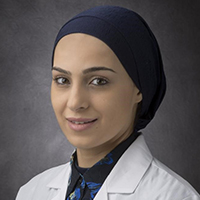
Iman Abou Dalle
Lebanon
Bio
Iman Abou Dalle
Assistant professor in hematology-oncology at the American University of Beirut medical center, and program director of the fellowship program. Graduated from the American University of Beirut then pursued two-year fellowship in leukemia at MD Anderson Cancer center in Houston,Texas. Dr. Abou Dalle authored and co-authored more than 50 publications in the last 5 years at peer reviewed journals of high impact in hematologic malignancies. She presented more than 20 abstracts at both national and international hematology meetings. Her main expertise is in hematologic malignancies, specifically in acute leukemias and myelodysplastic / myeloproliferative neoplasms.

Lionel Adès
France
Lionel Adès
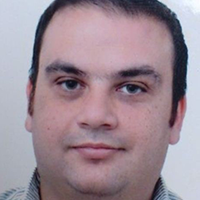
Tamim Alsuliman
France
Bio
Tamim Alsuliman
Hematologist at Saint-Antoine hospital (AP-HP Sorbonne Université), Paris. Department of hematology and cell therapy.
Tamim Alsuliman is also Member and co-responsible of many Francophone Society of Bone Marrow Transplantation and Cell Therapy harmonization Workgroups (2016-2023). He is also Researcher, author, reviewer and co-author in the fields of: Hematology, Hematopoietic Stem Cell Transplant, QoL of hematology patients, infectious diseases and medical applications of artificial intelligence. He serves as an editor and reviewer in several journals.
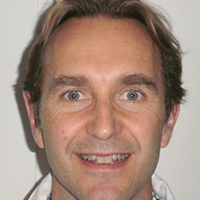
Alberto Alvarez-Larrán
Spain
Bio
Alberto Alvarez-Larrán
Alberto Alvarez-Larrán works as a consultant Hematologist at the Hematology Department of the Hospital Clínic, in Barcelona, Spain. His scientific interest has been focused on the study of the Ph-negative chronic myeloproliferative neoplasms (MPNs), mainly their natural history, prognosis, thrombotic complications, and treatment. His more important contribution in polycythemia vera was the pivotal study regarding the prognostic value of the criteria for resistance/intolerance to hydroxyurea. He has also studied the diagnostic criteria of polycythemia vera, the natural evolution of polycythemia vera with specific publications focused on splanchnic vein thrombosis, myelofibrotic transformation and the dynamics of the JAK2 allele burden. Currently he is the coordinator of the Spanish registry of patients with polycythemia vera.
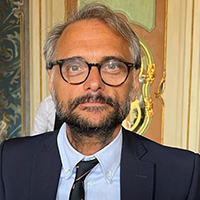
Luca Arcaini
Italy
Bio
Luca Arcaini
Luca Arcaini is Professor of Hematology at University of Pavia and is Chief of the Division of Hematology, Fondazione IRCCS Policlinico San Matteo, Pavia, Italy. His principal areas of investigation are marginal zone lymphomas and hepatitis C-associated lymphomas.
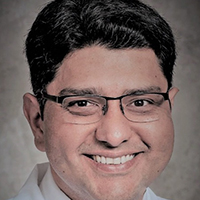
Farrukh Awan
USA
Bio
Farrukh Awan
Farrukh Awan, M.D., is a Professor in the Department of Internal Medicine at UT Southwestern Medical Center and a member of the Division of Hematology and Oncology at UTSW’s Harold C. Simmons Comprehensive Cancer Center where he leads the Lymphoid Malignancies Program. He specializes in stem cell transplant, cellular therapies and evaluation of novel therapies for the treatment of patients with lymphoid malignancies and chronic lymphocytic leukemias.

Talha Badar
USA
Bio
Talha Badar
Dr. Badar is a Hematology and Oncology Faculty at Mayo Clinic, Florida. Dr. Badar’s research interest is in Acute Leukemia and Chronic Myeloid disorders. His current research focuses on studying genomic/immune profile of patients with high-risk leukemia and how to develop innovative treatment strategies to improve outcome. Dr. Badar is also actively involved in clinical trials in myeloid neoplasms that are being conducted at National and International level.
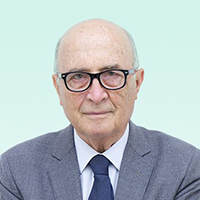
Tiziano Barbui
Italy
Bio
Ali Bazarbachi
Ali Bazarbachi, MD, PhD is a Professor of Medicine (Hematology and Oncology), Professor of Anatomy, Cell Biology and Physiological Sciences, and Founding Director of the bone marrow transplantation program at the American University of Beirut-Medical Center. He received his MD and PhD degrees, residency and fellowship training at the University of Paris in France. Dr. Ali Bazarbachi’s basic and translational research focuses on targeted therapies for hematological malignancies as well as post-transplant pharmacological interventions. He has co-authored more than 380 articles in leading scientific journals including The New England Journal of Medicine, Science, Journal of Experimental Medicine, The Lancet Oncology, Journal of Clinical Oncology, Blood, Nature Communication, and Cancer Research. He is a cofounder of the International Academy for Clinical Hematology, the Chairman of the EMBMT Leukemia Working Party, Chairman of the NCCN Lymphoma Group for Middle East and North Africa, past President of the Lebanese Society of Hematology, past President of the International Association for Comparative Research on Leukemia and Related Disorders, and Associate Editor of “Bone Marrow Transplantation” and of “Clinical Hematology International”. He garnered multiple prestigious national and international awards including the 2008 award of the French National Academy of Medicine, the 2022 King Hussein Lifetime Achievement Award for Cancer Research, and the Lebanese National Medal of Merit.

Mariana Bastos-Oreiro
Spain
Mariana Bastos-Oreiro
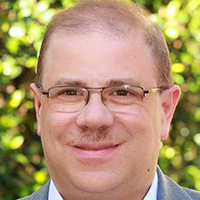
Ali Bazarbachi
Lebanon
Bio
Tiziano Barbui
Tiziano Barbui was graduated at the University of Padua (Italy). He was Consultant in Hematology at San Bortolo Hospital in Vicenza and founded the Department of Hematology at “Ospedali Riuniti di Bergamo” where he was the Director from 1981 to 2008 and chief of department of Oncology and Hematology. He was an adjunct professor in the school of specialization in hematology of the Universities of Milan (State and Bicocca University) and Verona University.
Professor Barbui is currently the Scientific Director of FROM Research Foundation at Papa Giovanni XXIII Hospital, Bergamo (Italy).
He has served as Chairman on the Subcommittee on Lupus Anticoagulant of the International Society of Thrombosis and Haemostasis, and was former President of the Italian Society of Hematology.
Currently, he leads the European-Leukemia-Net WP-9 on Myeloproliferative Disorders. He is one of the founders of the NIH (US) Myeloproliferative Disorders Consortium. Currently he is a member og the Good Governance Committee of European Hematology Association (EHA).
Professor Tiziano Barbui published so far more than 700 scientific articles in International peer reviewed journals. During decades he significantly contributed to many fields of general hematology. The most cited articles refer to the Lupus anticoagulant syndrome, the hemostatic disturbances and therapy of acute leukemia, the optimization of diagnosis, prognosis and treatment of myeloproliferative neoplasms.he is one the principal promoters of European LeukemiaNet guidelines on MPN.
He has been the principal investigator in several academic clinical trials published in the New England Journal of Medicine.
Prof. Barbui received the gold medal from the Bergamo City Hall for his continued dedication for the care of patients with malignant hematologic diseases and for his contribution to the advance of hematology science. During the European Hematology Association (EHA) meeting in Stockholm.
(2013), he received the “Jean Bernard award” for his contribution to optimization of diagnosis, prognosis and therapy of the Myeloproliferative neoplasms and for establishing international networks for clinical research in Hematology.
He is currently very involved in research of MPN and COVID on behalf of European Leukemia Net (ELN) and in Polycythemia Vera Clinical Trials.
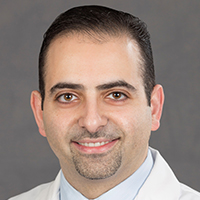
Amer Beitinjaneh
USA
Bio
Amer Beitinjaneh
Dr. Amer Beitinjaneh is an Associate Professor of Medicine at the University of Miami/Sylvester Comprehensive Cancer Center. He is a nationally recognized expert in cellular therapy and stem cell transplantation for aggressive hematologic malignancies. His research is focused on advancing the field of adoptive T-cell transfer, including T-cell therapy against EBV virus-driven lymphomas and chimeric antigen T-cell therapy. He serves as the principal investigator for several novel clinical trials at the Sylvester NCI-designated Cancer Center and has more than 100 peer-reviewed manuscripts to his credit. Additionally, Dr. Beitinjaneh actively contributes as a member of the CTN steering committee, and various CIBMTR and EBMT working committees, proposing and reviewing national trials related to stem cell transplantation and cellular therapy.

Ohad Benjamini
Israel
Ohad Benjamini
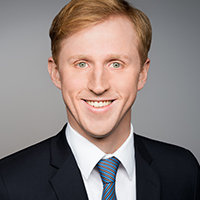
Philippe Berning
Germany
Philippe Berning

Didier Blaise
France
Bio
Didier Blaise
Prof Didier Blaise, MD: Aix Marseille Univ (AMU), Management Sport Cancer Lab (MSC EA4670) Institut Paoli Calmettes (IPC) Marseille, France
Didier Blaise, MD is professor of hematology at Aix Marseille University. He is director of the transplant and cellular immunotherapy program at Institut Paoli Calmettes, Marseille. He has contributed to more than 600 peer reviewed publications. His major focuses are optimization, social and economic evaluation of innovation in allogeneic transplantation.
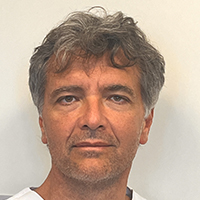
Stephane Chauvie
Italy
Bio
Stephane Chauvie
Stephane Chauvie is an Italian Medical Physicist with a post-graduate degree in Medical Physics at University of Torino and in Healthcare Management at University of Roma “La Sapienza”.
He is currently head of Medical Physics Division in Santa Croce and Carle Hospital, where he has been working since 2004. He serves as an expert for the International Atomic Energy Agency (IAEA) and European Laboratory for Particle Physics (CERN). From 2012 he is the Head of Imaging Corelab performing Clinical Trials Qualification on behalf of several national and international onco-haematological societies.
Actually, his major research topic in onco-haematology is the use of imaging in the prognosis of limphoma patient. Expert in Menton meeting from the very beginning he is now the Head of Imaging and Radio-immunotherapy for Italian Foundation of Lymphoma (FIL).
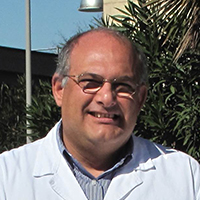
Fabio Ciceri
Italy
Bio
Fabio Ciceri
Professor Fabio Ciceri is Director of Hematology and Bone Marrow Transplantation and Director of Cancer Center at San Raffaele Hospital.
Since 2018 he is full professor of Hematology at the Vita-Salute San Raffaele University, where he also directs the residency school in Hematology.
He graduated in Medicine and Surgery at the University of Pavia, and then specialised in Rheumatology at the University of Ferrara and in Hematology at the University of Milan.
Professor Fabio Ciceri is very active in the hematological field, where he deals with the treatment of acute leukaemia, aggressive lymphomas, myeloproliferative neoplasms, and hemoglobinopathies, contributing to the definition of both observational and prospective and interventional clinical studies. During his career he has developed advanced skills in the field of stem cell transplantation and gene therapy for the treatment of blood cancers, solid and non-neoplastic diseases such as autoimmune, neuroinflammatory, genetic diseases including hemoglobinopathies.
Since 1996, Professor Ciceri has been principal investigator in the clinical development of advanced cell therapy, gene therapy and regenerative medicine programmes, in the field of both oncological and non-oncological diseases.
He is past President of GITMO (Gruppo Italiano Trapianto Midollo Osseo, www.gitmo.it) and Chair of Acute Leukemia Working Party of EBMT (www.ebmt.org) and active member of expert groups including the Italian Society of Haematology (SIE), European Haematology Association (EHA), ERN-EuroBloodNet.
He is consultant for many Pharma and Biotech companies for the development of new drugs and ATMPs.
He is President of AISPO NGO (www.aispo.org) and active in health care cooperation projects in Africa and Middle East.
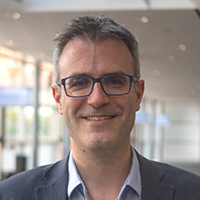
Graham Collins
UK
Bio
Graham Collins
Professor Collins is Associate Professor of Haematology and lymphoma lead clinician at the Oxford University Hospitals, UK. He is deputy chair of the NCRI lymphoma study group and his academic interests focus around Hodgkin and high grade non-Hodgkin lymphoma including T-cell lymphoma. He is chief investigator of a number of investigator initiated studies, has co-authored national guidelines and is a clinical expert on the national CAR-T cell panel for lymphoma.
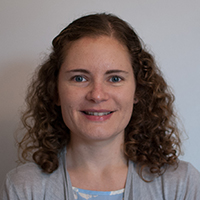
Emma Cookson
UK
Bio
Emma Cookson
Emma Cookson joined The Lancet Haematology as Senior Editor in 2019 and was acting Deputy Editor from March 2021–April 2022. She received her PhD in mechanisms of exocytosis of von Willebrand Factor from endothelial cells from the MRC National Institute for Medical Research/Francis Crick Institute (UK) in 2012 and held a research post at the Department of Neuroscience at the University of Wisconsin-Madison (USA). She has worked for several journals during her publishing career, including a portfolio of medical journals in the BMC Series (Springer Nature) and BMJ Open before joining The Lancet group.
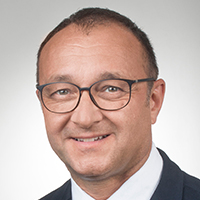
Selim Corbacioglu
Germany
Bio
Selim Corbacioglu
Selim Corbacioglu is Professor and Chair of the Department of Hematology, Oncology and Stem Cell Transplantation at the Children’s Hospital in Regensburg, Germany. His major research interest is focused on curative options for hemoglobinopathies and transplant-related systemic endothelial complications. The recipient of the Van Bekkum Award of the EMBT in 2010 for his work on defibrotide prophylaxis in children post-transplant, is author of numerous peer-reviewed articles published in the New England Journal of Medicine, Lancet, Lancet Oncoloy, Blood, among others. During his term as the scientific council chair and the Chair of the Pediatric Disease Working Party of the EBMT, one of his major contributions was the inauguration of the Hemoglobinopathy Working Party (HGP) of the EBMT and the Dietrich-Niethammer Award for outstanding scientific achievements in pediatric stem cell transplantation.
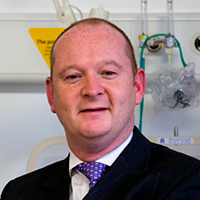
Andrew Davies
UK
Bio
Andrew Davies
Andrew Davies is Professor of Haematological Oncology in the Cancer Sciences Unit in the Faculty of Medicine, University Hospital Southampton. He completed his training in Medical Oncology at St Bartholomew’s Hospital in London, and as a Cancer Research UK clinical fellow he undertook a PhD examining the molecular mechanisms underlying transformation of follicular lymphoma to more aggressive histological sub-types.
Prof. Davies specialises in the treatment of malignant lymphoma. He has a particular interest in the investigation of monoclonal antibody-containing therapies and other novel therapeutics applied to lymphoma. His work also focuses on translation of biomarkers and novel therapies to the clinical arena. He has extensive experience in early phase trials, including leading several first in man lymphoma studies all the way through to leading late phase studies.
He is Chair of the UK National Cancer Research Institute Lymphoma Research Groups and past Chair of the High Grade Lymphoma Study Group. He is Director of the Cancer Research UK/National Institute of Health Southampton Experimental Cancer Medicine Centre. He is also the Wessex regional lead for cancers in Teenagers and Young Adults (TYA) and Clinical Lead for the Thames Valley and Wessex TYA Operational Delivery Network.

Stephane De Botton
France
Stephane De Botton
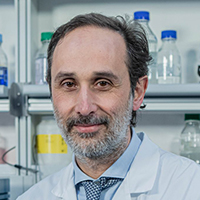
Matteo Della Porta
Italy
Bio
Matteo Della Porta
My research interests mainly concern myeloid neoplasms (MN, including myelodysplastic syndromes, MDS; acute myeloid leukemias AML; and myeloproliferative neoplasms, MPN)
These investigations led to the identification of recurrent gene mutations in myelodysplastic syndromes. In particular, in 2010, I joined the International Cancer Genome Consortium Chronic Myeloid Disorders Working Group. This collaboration led to the identification of somatic mutations of SF3B1, a gene encoding a core component of RNA splicing machinery, in myelodysplasia with ring sideroblasts [N Engl J Med. 2011;365(15):1384-95]
I extensively studied the genotype-phenotype correlations of recurrent gene mutations in MN, and we found a close association between ring sideroblasts and SF3B1 mutations, which is consistent with a causal relationship. Moreover, we found that SF3B1 mutations were independent predictors of favourable prognosis, providing the first evidence that the identification of the mutant gene responsible for the initial clone in MN is relevant to clinical outcome. [Blood. 2011;118(24):6239-46, J Clin Oncol. 2013;31(28):3557-64; Blood. 2013 ;122(22):3616-27 Blood. 2015 Jul 9;126(2):233-41, Leukemia. 2015;29(1):66-75].
According to these progresses in defining the genomic landscape of MN, in recent years there was a shift from clinical and morphologic classification/prognostication schemes to those that are based on genomics which are closer to the disease biology and better capture clinical-pathological entities. In this context, by using advanced statistical models, we developed a proof of concept for the definition of a molecular classification of myelodysplastic syndromes [Nat Med. 2020;26(10):1549-1556; J Clin Oncol. 2021;39(11):1223-1233], thus providing evidence that MDS with SF3B1 and TP53 mutations are distinct disease entities.
In addition, my research activity showed that gene mutations may influence survival and risk of disease progression in MN, and that the evaluation of the mutation status may add significant information to currently used prognostic scores. In this context, we contributed to the definition of the new molecular prognostic score for myelodysplastic syndromes (Molecular International Prognostic Scoring System, IPSS-M) including both clinical and genomic features [NEJM Evid 2022;1(7)DOI:https://doi.org/10.1056/ EVIDoa2200008] and we provided an extensive validation of its prognostic value. [J Clin Oncol, 2023 in press]
In last years, as scientific and clinical coordinator of EU-funded initiatives (GenoMed4all – www.genomed4all.eu and SYNTHEMA – www.synthema.eu), I approached the study of Artificial Intelligence as a toll to improve personalized medicine in hematology. We developed solutions to improve clinical decision making process; in particular, we build decision models to better define candidate patients and optimal timing of stem cell transplantation, the only curative treatment for MN [J Clin Oncol. 2016;34(30):3627-3637; Leukemia. 2017;31(11):2449-2457; Lancet Haematol. 2023;10(2):117-28]
Overall, my research activity contributed to the development and clinical implementation of personalized medicine programs in MN, including improved disease diagnosis and classification, definition of optimal treatment and prediction of future outcomes.
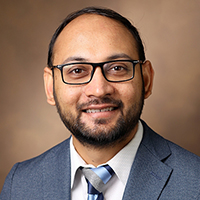
Bhagirathbhai Dholaria
USA
Bio
Bhagirathbhai Dholaria
Dr. Dholaria is currently an associate professor in the Department of Hematology-Oncology at Vanderbilt University Medical Center, Nashville, TN. His areas of specialization and primary research focus are lymphoid neoplasms, plasma cell malignancies, adoptive cellular therapies, and stem cell transplantation. He has conducted studies investigating the outcomes of patients with non- Hodgkin lymphoma and acute leukemia undergoing chimeric antigen receptor T-cell (CAR-T) therapies. He is involved in translational research investigating the biomarkers of CAR T-cell therapy-associated toxicities. He has also conducted several observational studies utilizing cancer registries to study transplant outcomes of acute leukemia patients and presented his findings in national meetings. His team’s work on stem cell transplantation has been published in multiple manuscripts. His current research efforts are focused on testing novel agents to address relapse after CAR T therapy in lymphoma and multiple myeloma.
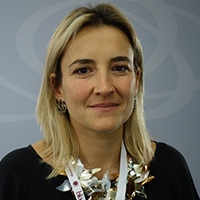
María Díez Campelo
Spain
Bio
María Díez Campelo
Prof. Díez Campelo has been working at the Department of Hematology at the University Hospital of Salamanca, IBSAL in Spain and is an Associate Professor of Hematology at the University of Salamanca in Spain. Head of Myelodysplastic Syndromes team President of the Spanish MDS group (GESMD) since 2018. She also is involved in the European Myelodysplastic Syndromes Cooperative Group (EMSCO).
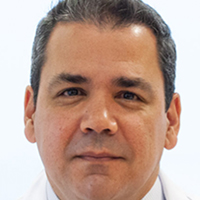
Rafael Duarte
Spain
Bio
Rafael Duarte
Rafael F. Duarte, MD, PhD, FRCP (Lon).
- Head of Department of Hematology at Hospital Puerta de Hierro in Madrid.
- He is a HSCT physician and scientist with particular interest in infective and non-infective complications of transplant and cellular therapies, past-chair of the EBMT Transplant Complications Working Party, past-Secretary of the Society and EBMT Congress President in 2020 and 20212, and current member of the CIBMTR Advisory Committee At-Large since 2022.
- His scientific contributions in this field (H index 66; 391 publications) have been recognized by the Web of Science/Clarivate in the List of Highly Cited Researchers 2021, 2022 and 2023.

Thierry Facon
France
Bio
Thierry Facon
Thierry Facon, MD, is Professor of Haematology in the Department of Haematology, Lille University Hospital, Lille, France, a position he has held since 2000. Professor Facon received his MD at Lille University School of Medicine in 1987 and became Assistant Professor of Haematology at Lille University Hospital in 1989.
Professor Facon was President of the Intergroupe Francophone du Myélome (IFM) between 2003 and 2006, Vice-President of the French Society of Haematology between 2005 and 2013. Professor Facon has presented at several international congresses, including the Plenary session at the annual meeting of the American Society of Clinical Oncology (ASCO) in 2006, the Plenary sessions at the annual meeting of the American Society of Hematology (ASH) in 2013 and 2018 the Educational Session of European Haematology Association (EHA) in 2008 and 2014, and the Educational session of ASH in 2015 and 2018. He co-organized the XIIIth International Myeloma Workshop (IMW) in Paris in 2011, and is a member of the American Society of Hematology (ASH), the International Myeloma Working Group (IMWG), the International Myeloma Foundation (IMF). He is a founder member and administrator of the Fondation Française pour la Recherche contre le Myélome et les Gammapathies (FFRMG) under the aegis of the Fondation de France whose main objective is to enable scientists and students to carry out research programs in host laboratories in France or abroad.
He has presented the “Pierre Stryckmans Memorial Lecture” of the Belgian Hematological Society in 2015 and received the Joseph Michaeli Award from Weill Cornell Medicine, New York USA for his contributions to the treatment of Myeloma Research in 2017 and the International Myeloma Foundation Robert A. Kyle Life Time Achievement Award in 2020. He is an Honorary Professor at the Institute of Hematology & Blood Diseases Hospital, Chinese Academy of Medical Sciences, Peking Union Medical College, China since 2015. Professor Facon is author and co-author of a number of articles and has published his work in various prestigious international journals including, as first or senior author, The Lancet and The New England Journal of Medicine.
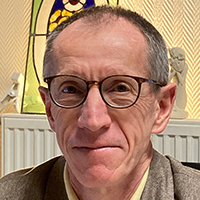
Pierre Fenaux
France
Bio
Pierre Fenaux
Prof. Sebastian Giebel is an internal medicine, hematology and clinical transplantation specialist. He is head of the Department of Bone Marrow Transplantation and Onco-Hematology and Deputy Director for Clinical Matters in Maria Sklodowska-Curie National Research Institute of Oncology in Gliwice, Poland. Prof. Giebel is the President of the Polish Adult Leukemia Group (PALG) and the Polish Lymphoma Research Group (PLRG), the Secretary of the Acute Leukemia Working Party of the European Society for Blood and Marrow Transplantation (EBMT), board member of The Polish Society of Hematology and Transfusion Medicine, member of the European Working Group for Adult Acute Lymphoblastic Leukemia. An author of over 250 scientific papers, mainly in the field of hematology and hematopoietic cell transplantation. In 2017 he was awarded Jedrzej Sniadecki Medal of the Polish Academy of Sciences, the highest national distinction in the field of medicine.

Andrea Gallamini
France
Andrea Gallamini
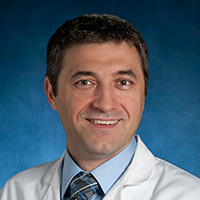
Gabriel Ghiaur
USA
Bio
Gabriel Ghiaur
Dr. Ghiaur, a member of the Johns Hopkins Kimmel Cancer Center, is a physician-scientist whose primary interest is normal and malignant hematopoiesis, especially the role of the microenvironment in cell extrinsic drug resistance and persistence of minimal residual disease. He has distinguished himself as an outstanding laboratory-based investigator and a superior clinician. His research has translational potential in stem cell therapeutics, as well as acute leukemia and multiple myeloma.
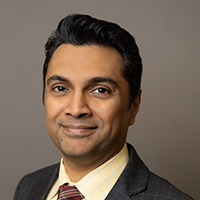
Nilanjan Ghosh
USA
Bio
Nilanjan Ghosh
Nilanjan Ghosh, MD, PhD, FACP is the Chair Department of Hematologic Oncology and Blood Disorders, Chief, Lymphoma Division at Levine Cancer Institute and Professor at Wake Forest School of Medicine. His clinical and research expertise is in lymphoma and CLL. His research focuses on efforts to improve treatments in lymphoma, evaluation of novel therapies as well as transplant and cellular therapies in lymphoma. He is a member of the SWOG Cancer Research Network lymphoma committee and has been a principal investigator of multiple clinical trials in lymphoma.
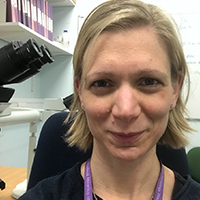
Anna Godfrey
UK
Bio
Anna Godfrey
Anna Godfrey is a Consultant Haematologist in Cambridge, UK, with interests in myeloproliferative neoplasms and diagnostic haemato-oncology. She is Clinical Lead for the Cambridge Haematopathology and Oncology Diagnostics Service which provides haematopathology provision to the East Anglia region. Her PhD is in the biology of JAK2-positive myeloproliferative neoplasms and she is principal investigator and/or co-investigator for a number of MPN clinical trials.
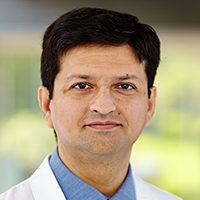
Mehdi Hamadani
USA
Bio
Mehdi Hamadani
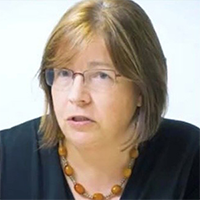
Claire Harrison
UK
Bio
Claire Harrison
Professor Claire Harrison graduated from Oxford Univeristy Medical School and became a consultant at the Guy’s and St Thomas Hospital in 2001, where she is now a deputy medical director.
The focus of her clinical work is myeloproliferative neoplasms (MPN), for which she has a national and international reputation. Key areas of interest are clinical trials and associated translational research. In addition to the PT-1 trial, MAJIC, COMFORT-II, JAKARTA-2 and PERSIST-1 where she is currently the global chief or co-chief investigator, she has a leadership role in over 20 clinical trials. This work has led to the approval of new therapies such a ruxolitinib, fedratinib and pacritinib. Translational research has been supported with a grant income of over £10M in the past 5 years. JAK2 exon 12 mutations, genetic suseptibility and the impact of the order of mutations in MPN. In the past 10 years she has published widely (>250 academic articles).
In addition she has a strong interest in patient advocacy and founded the UK MPN group www.mpnvoice.org.uk.
The clinical MPN service at GSTT is large, comprehensive and is internationally recognised as a centre of excellence.
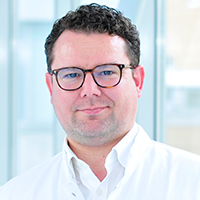
Florian Heidel
Germany
Bio
Florian Heidel
Florian Heidel is Professor and Director of the Department of Hematology and Oncology at Greifswald University Medicine, Germany, with clinical and experimental focus on myeloproliferative neoplasms. He serves as co-speaker of the German MPN Study Group (GSG-MPN).
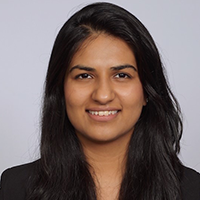
Madiha Iqbal
USA
Bio
Madiha Iqbal
My name is Madiha Iqbal, I am an assistant professor in the division of hematology-oncology at Mayo Clinic. My clinical and research expertise is in cellular therapies and my disease focus is non-Hodgkin and Hodgkin lymphoma. Specific research areas of interest include health outcome, healthcare delivery and evidence-based medicine research.
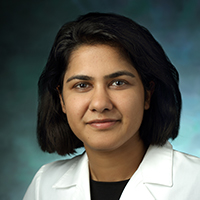
Tania Jain
USA
Bio
Tania Jain
Tania Jain a physician scientist in the hematological malignancies and stem cell transplantation division with Sidney Kimmel Comprehensive Cancer Center at the Johns Hopkins and my academic focus is cellular therapy and transplantation in the treatment of high-risk hematological malignancies with a disease focus on myeloproliferative neoplasms. In my role as clinical investigator, I initiate and conduct clinical trials involving novel agents in MPNs and position the role of treatments to improve transplantation outcomes.
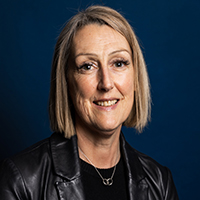
Michelle Kenyon
UK
Bio
Michelle Kenyon
Michelle Kenyon is a Consultant Nurse in haematopoietic stem cell transplantation, whose interests focus on improving the patient and caregiver experience during transplantation and supporting patients throughout their post-transplant recovery. Her role also enables her to lead a team and teach regularly. As current President of the European Blood and Marrow Transplant (EBMT) Nurses’ Group, she has a strong commitment to delivering education for nurses both nationally and internationally to benefit patient care. Michelle has authored two patient information books, which are used as the basis for informed consent for transplant recipients throughout the UK, and she is Co-editor of the first EBMT Textbook for Nurses, the second edition of which was published in 2023. Her research and service development interests centre on patient experience and health inequalities, psychosocial issues, treatment consequences and the unmet needs of those living with and beyond their diagnosis.
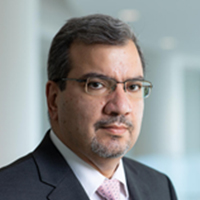
Mohamed Kharfan-Dabaja
USA
Bio
Mohamed Kharfan-Dabaja
Mohamed A. Kharfan-Dabaja, MD, MBA, FACP
Professor of Medicine
Vice-chair, Hematology
Director, Blood and Marrow Transplantation and Cellular Therapies
Medical Director, Cancer Research Office (Florida Campus)
Director, Inpatient Hematology Unit
Mayo Clinic Florida
Jacksonville, FL
Dr. Kharfan-Dabaja is a Professor of Medicine, Vice-Chair of Hematology, and the Director of the Blood and Marrow Transplantation and Cellular Immune Therapies programs at Mayo Clinic in Jacksonville, FL. His main interests are chimeric antigen receptor T-cell (CAR-T) therapy for lymphoid neoplasms and reduced intensity allogeneic hematopoietic cell transplantation for various hematologic malignancies.
He is Board certified in Medical Oncology and Hematology. He is a co-Chair of the Lymphoma Working Committee of the Center for International Blood and Marrow Transplant Research (CIBMTR), the chair of the Payer Relation Committee and a member of the Clinical Practice Guidelines Committee of the American Society for Transplantation and Cellular Therapy, and a member of the Committee on Investment and Audit of the American Society of Hematology.
He has published over 330 peer-reviewed manuscripts, 21 book chapters and has presented his work at various regional, national and international scientific platforms.
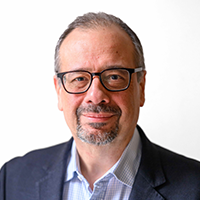
Shahram Kordasti
UK
Bio
Shahram Kordasti
Following his graduation from medical school and clinical training in Internal Medicine/Haematology, Dr Kordasti received his MSc in Medical Immunology and PhD in Cancer Immunology from King’s College London. He is currently a reader (Associate Professor) in Applied Cancer Immunopathology at King’s College London. He is also a clinical haematologist at Guy’s Hospital, and he has an interest in MDS, AA, and myeloproliferative neoplasms (MPN). His main research interest lies in the plasticity of CD4+ T cells, their interaction with the inflammatory microenvironment, and their role in the immunobiology of myeloid malignancies. Another focus of his research group is computational biology, multidimensional cytometry, and integrating multiomics data for patient stratification. Additionally, he leads an international consortium, i4MDS, focusing on standardising immune monitoring in patients with MDS.
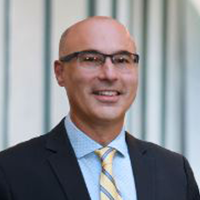
Ioannis Kotsianidis
Greece
Bio
Ioannis Kotsianidis
Ioannis Kotsianidis is professor of Haematology in Democritus University of Thrace and the head of the department of Haematology at University Hospital of Alexandroupolis He has a longstanding clinical and scientific experience in Hematology and is or have been a member of numerous scientific societies, Chair of the Hellenic MDS Study Group, vice-president of the Foundation of Hellenic Society of Haematology, member of the Oversight/Advisory committee of International Working Group for Prognosis in MDS (IWG-PM) and member of the steering committee of the EUMDS Registry.
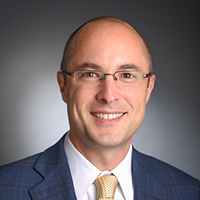
Coleman Lindsley
USA
Bio
Coleman Lindsley
Dr. Lindsley is an Associate Professor of Medicine at Harvard Medical School and Dana-Farber Cancer Institute, where he is Director of the Edward P. Evans Center for Myelodysplastic Syndrome and Director of Clinical Genomics in Hematologic Malignancies. He is and a laboratory investigator in the Division of Hematologic Neoplasia at DFCI and an Associate Member of the Broad Institute of Harvard and MIT. His research focuses on the biology and treatment of myeloid malignancies, with specific emphases on leukemia genomics, familial leukemia predisposition, and understanding donor and recipient factors that drive clinical outcomes after bone marrow transplantation. His work has been incorporated into revisions of the World Health Organization (WHO) and International Consensus Classifications (ICC) of leukemia and new models for understanding MDS outcome after transplantation.
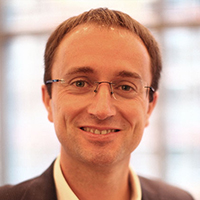
Stefano Luminari
Italy
Bio
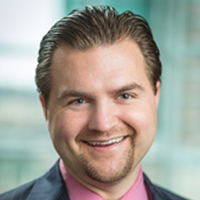
Matthew Lunning
USA
Bio
Matthew Lunning
Matthew Lunning D.O., FACP, is an Associate Professor in the Division of Hematology/Oncology at the University of Nebraska Medical Center. Dr. Lunning also is Associate Vice Chair of Research for the Department of Internal Medicine, Assistant Vice Chancellor of Clinical Research, and Medical Director of Gene & Cellular Therapies.
He received his medical degree from Des Moines University in 2006. Dr. Lunning completed his internal medicine residency at UNMC where he served as Chief Medical Resident. He completed his Hematology/Oncology fellowship and served as the Hematology Chief Fellow at Memorial Sloan-Kettering Cancer Center. Dr. Lunning returned to UNMC in 2013 and has been active in clinic research, research mentoring, education, and patient care. Dr. Lunning was the recipient of the Distinguish Scientist Award in 2019.
Dr. Lunning has served on several National Comprehensive Cancer Network’s guidelines committees including the Immunotherapy Toxicity & T-cell lymphoma panels. He has served as an invited member of ASCO’s Cancer Education Committee on the Non-Hodgkin Lymphoma. He is the co-organizer of the Pan Pacific Lymphoma Conference.
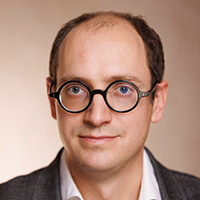
Florent Malard
France
Bio
Florent Malard
Florent Malard, MD, PhD, studied medicine at the University of Nantes, France and obtained his PhD degree at Sorbonne Université in Paris, France, followed by a postdoctoral fellowship at the Memorial Sloan Kettering Cancer Center, New York, USA. He is now appointed as a Professor of Hematology at Sorbonne Université and Saint-Antoine Hospital, Paris, France. His research works focused on allogeneic hematopoietic cell transplantation, immunology, microbiota and multiple myeloma. He has published so far over 100 publications on these topics.
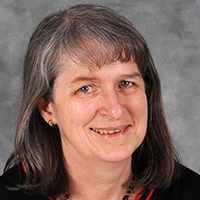
Mary Frances McMullin
UK
Bio
Mary Frances McMullin
Professor Mary Frances McMullin trained in Haematology in N. Ireland and The Royal Postgraduate Medical School, Hammersmith hospital, London. She was appointed senior lecturer in haematology in QUB in 1991 and consultant haematologist and proceeded to Professor of Haematology in 2006. Her clinical and research interests include myeloproliferative neoplasms, investigation of the rare congenital erythrocytosis, and acute myeloid leukaemia. She has published extensively in the area.

Adam Mead
UK
Bio
Adam Mead
Adam Mead is a professor of haematology in the University of Oxford. Professor Mead is the Clinical Lead for Myeloproliferative Neoplasms (MPN) at Oxford University Hospitals NHS Foundation Trust and has been the Principal or Chief Investigator of over 50 clinical trials in MPN and chronic myeloid leukaemia (CML). He chaired the National Cancer Research Institute MPN subgroup from 2016 to 2022. Professor Mead’s leads a research group at the MRC Weatherall Institute of Molecular Medicine. The overarching focus of his research group is to discover novel and rational therapeutic strategies to address the current unmet need in persons with MPN, fuelled by a better understanding of the biological principles underlying disease development and progression. His work using cutting edge techniques in single cell genomics and experimental models has revealed hitherto unrecognised heterogeneity of cancer stem cells in MPN, including a key role for inflammation in promoting therapy resistance and genetic evolution.
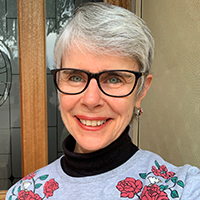
Junia V. Melo
Australia
Bio
Junia V. Melo
Professor Junia Melo worked as a clinical haematologist in Brazil and in London (Imperial College), before moving to Australia to take up the positions of Head of Leukaemia Research at the Centre for Cancer Biology, and Professor of Medicine at the University of Adelaide. Her research was focused on the molecular biology and cell kinetics of chronic myeloid leukaemia and related myeloproliferative disorders, and on identifying new molecular targets for the treatment of these diseases. Since 2013, she has been mainly working as a medical writer, editor and advisor on medical publication matters. Professor Melo is a member of the Editorial Boards of ‘Blood’ and ‘Clinical Hematology International’, of the American Society of Hematology (ASH) and a Fellow of the Royal College of Pathologists (FRCPath). She has authored over 200 publications in peer-reviewed journals.
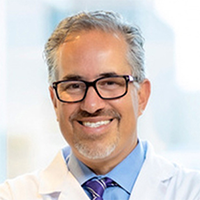
Ruben Mesa
USA
Bio
Ruben Mesa
Dr. Mesa serves as the executive director of the Mays Cancer Center, one of only four National Cancer Institute-designated Cancer Centers in Texas. Dr. Mesa is internationally renowned expert on myeloproliferative neoplasms (MPNs), a group of bone marrow disorders that often lead to leukemia. He has been the principal investigator or co-principal investigator of more than 100 clinical trials and co-led the research teams leading to the FDA’s approval of 4 drugs including ruxolitinib, fedratinib, ropegylated interferon, and pacritinib. Dr. Mesa earned his Bachelor of Science degrees in nuclear engineering and physiology, with minors in radiation biophysics and bioengineering, from the University of Illinois at Urbana-Champaign. He received his medical degree, completed his residency in internal medicine and fulfilled his fellowship in hematology/medical oncology from the Mayo Graduate School at the Mayo Clinic College of Medicine in Rochester, Minnesota. He is a fellow of the American College of Physicians and is certified by the American Board of Internal Medicine in internal medicine and medical oncology. Dr. Mesa has been elected to the boards of the American Association of Cancer Institutes and is an officer of the board of the Leukemia and Lymphoma Society.
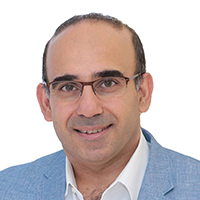
Mohamad Mohty
France
Mohamad Mohty

Razan Mohty
USA
Bio
Razan Mohty
Razan Mohty, MD, serves as an Assistant Professor of Medicine in the University of Alabama at Birmingham. She specializes in the treatment of hematologic malignancies, particularly in leukemia and Blood and Marrow Transplantation and cellular therapies. Dr. Mohty’s research interests include leukemia, Blood and Marrow Transplantation, and Cellular Immunotherapy, with a particular focus on preventing relapse and addressing complications. She has published over 40 peer-reviewed manuscripts in leading hematology and transplantation journals.
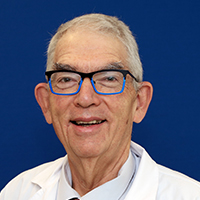
Arnon Nagler
Israel
Arnon Nagler
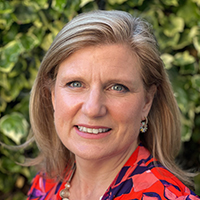
Wendy Osborne
UK
Bio
Wendy Osborne
Dr Wendy Osborne is a Consultant Haematologist at the Freeman Hospital, Newcastle, UK. She graduated with First Class Honours from Newcastle University in 1998.
Dr Osborne is past chair of the British Society of Haematology Lymphoma Group and a member of the UK Lymphoma Research Group. Dr Osborne is a principal investigator and co-investigator for numerous clinical trials, an Honorary Clinical Senior Lecturer at Newcastle University and teaching lead for the haematology undergraduate programme.
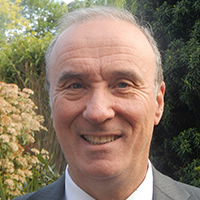
Antonio Pagliuca
UK
Bio
Antonio Pagliuca
Antonio Pagliuca is a Consultant Haematologist and Professor of Stem Cell Transplantation at King’s College Hospital/King’s College London, UK and External Medical Advisor for Anthony Nolan. He was Transplant Director for 19 years, where he led King’s to the attainment of Centre of Excellence status and set up one of the largest matched unrelated donor, cord , haploidentical transplant and cellular therapy programmes in the UK. Professor Pagliuca’s past roles also include President of the British Society of Blood and Marrow Transplantation, Chair of the Blood and Marrow Transplantation Clinical Reference Group and National Clinical Lead for Regenerative Medicine for NHS England. He is widely published in the medical literature on haematological malignancies, stem cell transplantation and infections in transplant patients.
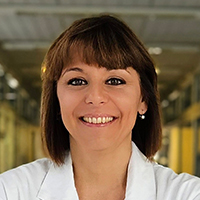
Francesca Palandri
Italy
Bio
Francesca Palandri
Dr Francesca Palandri is a medical doctor at the Institute of Hematology/Oncology “L. and A. Seràgnoli”, IRCSS St. Orsola-Malpighi University Hospital, Bologna, Italy. She gained her PhD in 2009, focusing her research on the biology and treatment of myeloproliferative neoplasia including CML and Ph-negative MPNs.
She is now the Head of the Inpatient Unit for the treatment of Ph-negative MPNs of the Institute of Hematology “L. and A. Seràgnoli”. She coordinates a group of research on Ph-negative MPNs, including dedicated medical doctors, molecular and cell biologists, biostatisticians and data-managers. Dr Palandri is Author of >200 full papers published in peer-reviewed Journals and of more than 300 abstract presented at international meetings.
Dr Palandri is a recognized investigator in hematology/oncology with extensive experience in treating patients with MPNs, including myelofibrosis, polycythemia vera, and essential thrombocythemia. Key areas of interest include optimizing treatment strategies in MPNs and the importance of mutation burden in these conditions. She has presented her work at several international congresses and has served as chair for various meetings focused on treatment strategies for MPNs.
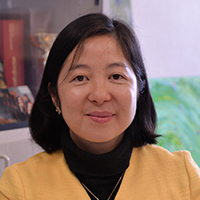
Sophie Park
France
Bio
Sophie Park
Prof. Sophie Park is head of the Department of Hematology in Grenoble Alpes Hospital, France, where she became Professor of Hematology in 2013. After obtaining her medical degree, she became a fellow and then Associate Professor at Cochin Hospital, Paris, where she became board certified in 2003. She did a Postdoctoral Fellowship in Dominique Bonnet’s lab at Cancer Research UK, London, working on PDX murine models of AML.
Prof. Park’s research focuses on MDS and her clinical practice focuses on elderly acute leukemias and MDS. Prof. Park has been Chief Investigator in numerous Phase II/III studies of ESAs and iron overload in lower-risk MDS. She also leads translational research at the Institute for Advanced Biosciences, Grenoble, focusing on the role of the niche microenvironment, extracellular vesicles and miRNA in MDS pathophysiology, and has supervised numerous Masters and PhD students.
Prof. Park has delivered lectures and symposia at local, national, and international conferences and has authored book chapters, and articles published in the New England Journal of Medicine, Journal of Clinical Oncology, and Blood. She is a scientific board member for the Groupe Francophone des Myélodysplasies, of different scientific advisory boards in France and an advisory board member for drug manufacturers including Novartis, BMS, Pfizer.
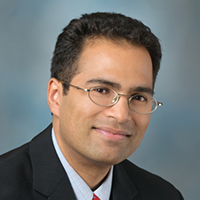
Naveen Pemmaraju
USA
Bio
Naveen Pemmaraju
After completing my Internal Medicine training at Johns Hopkins, in the Osler Medical Program, I subsequently completed both hematology and oncology training at MD Anderson Cancer Center (MDACC). I was selected as a chief fellow in my second year of training. I obtained ABIM board certification in Internal Medicine, Hematology and Oncology, and continued my career at MDACC as an Assistant Professor in the Department of Leukemia. I have an active clinical schedule during which I see patients: 2 full days of clinic per week, and 2 months of inpatient service per year. I have fellow teaching responsibilities as a Leukemia hematology/oncology Course Director and was the sole recipient of the MDACC Gerald P Bodey Award for Excellence in Education in 2020. My clinical/translational research work has been focused on improving outcomes and developing novel therapies for patients with rare myeloid malignancies, including for adolescents, young adults, and older adult patients with Blastic Plasmacytoid Dendritic Cell Neoplasm (BPDCN), Myeloproliferative Neoplasms (MPN) and Acute Myeloid Leukemia (AML).

Zinaida Perić
Croatia
Zinaida Perić
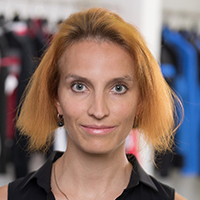
Lisa Pleyer
Austria
Bio
Lisa Pleyer
Lisa Pleyer is a full professor at Paracelsus Medical University Hospital Salzburg, Austria.
She is a board certified MD for internal medicine and hematology and oncology, with >10 years of experience in outpatient malignant and benign hematology.
Since 2011 she is the medical head of the advanced routine diagnostics laboratory and the stem cell laboratory of the 3rd medical dept. at PMU Salzburg, where she is the scientific group leader and PI for myeloid malignancies.
Completed university education in biomedical informatics with a focus on nanotechnology as well a master’s degree in business administration with a focus on international business aided in building the Austrian Myeloid Registry, which is a high granularity real world evidence data base documenting patients with myeloid neoplasias.
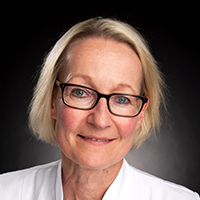
Christiane Pott
Germany
Bio
Christiane Pott
Prof. Christiane Pott is full professor for Clinical-Experimental Hematology and Deputy Director of the Second Medical Department, Hematology and Oncology at the University Hospital Schleswig-Holstein in Kiel, Germany. She is head of the lymphoma unit and has her scientific focus in molecular characterization of malignant lymphomas and MRD detection. She is the coordinatinor of different bioprograms in international clinical trials in follicular and mantle cell lymphomas and is the president elect of the German Lymphoma Alliance (GLA).
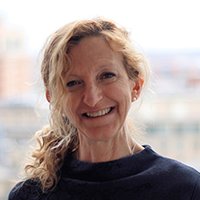
Susan Prockop
USA
Bio
Susan Prockop
As a member of the pediatric stem cell transplant service, Dr. Prockop has specific expertise in caring for patients with immune deficiencies and immune dysregulation. Dr. Prockop’s clinical research primarily involves immune reconstitution and the implementation and evaluation of investigator initiated and industry sponsored trials testing the use of banked viral specific T cell populations. She has presented results demonstrating the safety of these T-cells and their potential to induce durable remissions in the treatment of EBV and CMV infections and disease in patients with defects in their intrinsic immune control of these viruses. Reflecting these activities, and an expertise in the conduct of clinical trials involving complex cellular products she is the Associate Director for Clinical and Translational Research on the Stem Cell Transplant Program at the Dana Farber/Boston Children’s Cancer and Blood Disorders Center.
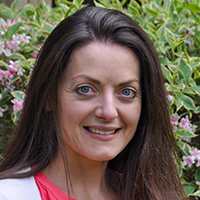
Bethan Psaila
UK
Bio
Bethan Psaila
Beth is an Associate Professor of Haematology and Clinician Scientist at the University of Oxford. She leads a research programme in the MRC Weatherall Institute of Molecular Medicine, focused on applying innovative methods to understand disease mechanisms in myeloid blood cancers and bone marrow fibrosis, and studying normal and malignant megakaryocyte and platelet biology. Beth is an active clinician, contributing to a tertiary referral centre for the care of patients with myeloproliferative neoplasms, national treatment guidelines, and a growing portfolio of clinical trials, with a particular focus on the emerging immunotherapies for MPNs.

Laurence Quarez-Blaise
France
Laurence Quarez-Blaise
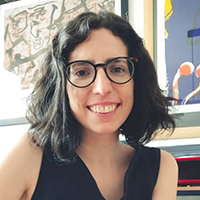
María Queralt Salas
Spain
Bio
María Queralt Salas
María Queralt Salas, MD, PhD
Hematopoietic Transplantation Unit,
Hospital Clínic de Barcelona,
Institute of Cancer and Blood Diseases (ICAMS),
Hospital Clínic de Barcelona, Spain
Dr. Salas, hematologist working at the Hematopoietic Cell Transplant Unit at Hospital Clinic de Barcelona and doctorated at the University of Barcelona in Novembre 2023.

Deepti Radia
UK
Bio
Deepti Radia
Dr Deepti H Radia, Haematology Consultant, Guy’s & St Thomas’ Hospitals NHS Foundation Trust, London.UK.
Deepti Radia, MRCPI, FRCPath, MSc Med Ed.
Deepti has been in her consultant post since 2003 and the lead clinician for the systemic mastocytosis and chronic myeloid leukaemia services. The ECNM UK mastocytosis centre of excellence at Guys and St Thomas Hospitals was jointly established by Deepti and Dr Clive Grattan in 2005. This nationally recognised service accepts referrals from across the UK, Ireland and further afield.
She is CI for landmark trials for patients with advanced/indolent systemic mastocytosis – PKC412, EXPLORER, PATHFINDER,PIONEER & SUMMIT. She is a member of the study steering committee for the EXPLORER/PATHFINDER trials (Avapritinib in advanced SM) and APEX trial (Bezuclastinib) for patients with advanced SM.
Deepti is actively involved in the education of clinicians and patients improve understanding of mast cell disorders by delivering regular teaching in regional, national, international meetings in addition to the UKMasto.org and TMS patient support groups.
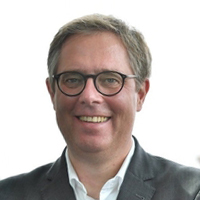
Andreas Reiter
Germany
Bio
Andreas Reiter
Dr. Andreas Reiter is Associate Professor and Consultant at the Department of Hematology and Oncology at the University Hospital Mannheim, Germany, where patients with chronic myeloid neoplasms receive specialist care and can be treated on national and international studies. His main research focus lies in the pathogenesis and treatment of classical myeloproliferative neoplasms (MPN) but also the broad spectrum of rare chronic myeloid neoplasms. Since 1992, he has been involved in numerous clinical trials, which most recently focused on diagnosis and treatment of myelofibrosis, polycythemia vera, chronic eosinophilic leukemia and systemic mastocytosis with tyrosine kinase inhibitors. Dr. Reiter is member of various decision-making bodies of the German Study Group for MPN (GSG-MPN). He has established the “German Registry for Disorders of Eosinophils and Mast Cells”.
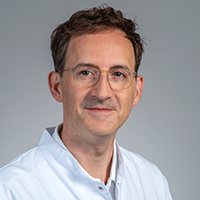
Christoph Röllig
Germany
Bio
Christoph Röllig
Christoph Röllig works as consultant haematologist at the University Hospital Dresden, Germany. After his hematology training, he graduated as master in public health at the London School of Hygiene and Tropical Medicine. Christoph Röllig has more than 20 years of clinical experience in hematology, and has published and co-authored more than 150 articles on AML and Multiple Myeloma. He is the coordinating investigator of several Investigator Initiated Trials in AML and the principal investigator in more than 50 clinical trials in AML. He is the first author of German AML guidelines and co-author of the ELN 2022 guidelines on diagnosis and management of AML.
Prof. Röllig is coordinating the German Study Alliance Leukemia Study group (SAL), he is a member of Working Group for Clinical Trials at the German Society for Hematology and Oncology (DGHO), Steering Committee member of the Scientific Working Group for AML at the European Haematology Association (EHA) and chairs the AML Working Group of the European LeukemiaNet (ELN).
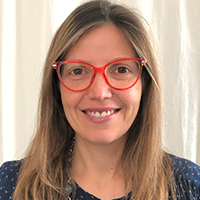
Annalisa Ruggeri
Italy
Bio
Annalisa Ruggeri
Annalisa Ruggeri received her Medical degree from University of Messina, Italy, in 2004. She completed her Hematology residency at the San Raffaele Vita-Salute University, Milano, Italy in 2008, and the PhD in Hematology in 2014. She was staff member at the Hematology Department at the Saint Antoine Hospital in Paris, France and at Pediatric Hemato-oncology and cell and Gene therapy Department at the Ospedale Bambino Gesù in Roma, Italy. Since February 2020 she is senior physician at the Hematology and Bone Marrow Transplant unit of the San Raffaele Scientific Institute in Milano, Italy. She is active in clinical research activities being the scientific chair of the Eurocord office in Paris since 2012, and the current chair of the Cellular therapy and Immunobiology working party of the European society of Blood and Marrow transplantation (EBMT) since 2022. She is member of the ISCT- Stem cell source and graft engineering Committee. She is author of more than 200 peer-reviewed publications (H-index 52, Scopus) and has participated as invited speaker of many international conferences such American Society of Hematology (educational sessions), European society of Hematology and EBMT, ESH, ISCT, TCT.
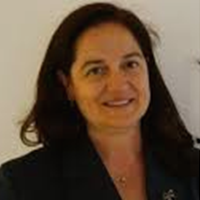
Valeria Santini
Italy
Bio
Valeria Santini
Valeria Santini is Associate Professor of Hematology at the University of Florence, Italy. She runs the MDS Unit- Hematology- Department of Experimental and Clinical Medicine- AOU Careggi, University of Florence. Her interests are focused on clinical and translational research in MDS and elderly AML. Professor Santini is President of the Scientific Committee of Fondazione Italiana per lo studio delle sindromi mielodisplastiche (FISiM) and Italian Network of MDS Registries. She belongs to ASH, EHA SOHO and MDS Foundation. She is also an author of more than 200 peer-reviewed papers published in international journals, she has been member of the Editorial board of Blood journal, and documented reviewer for high impact factor scientific journals. She has been an invited speaker at numerous international meetings including the American Society of Clinical Oncology (ASCO 2007: educational session on MDS), American Society of Hematology (ASH 2012, ASH 2016: educational sessions on MDS), European Haematology Association (EHA 2016, EHA 2020, EHA 2022: Educational sessions on MDS) and national haematology societies of several countries.

Aditi Shastri
USA
Bio
Aditi Shastri
Dr.Shastri is a physician-scientist and Associate Professor at the Montefiore Einstein Comprehensive Cancer Center, Bronx, NY. Her clinical expertise is in treating patients with myeloid malignancies such as clonal hematopoiesis , myelodysplastic syndromes & acute myeloid leukemia . Her NIH funded lab focuses on therapeutically targeting MDS/AML stem cells as well as working with large clinical & genomic datasets that have a health equity focus.
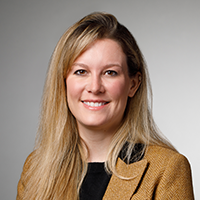
Alexa Siddon
USA
Bio
Alexa Siddon
Dr. Siddon works at Yale School of Medicine/Yale New Haven Hospital where she is an Associate Professor of Laboratory Medicine and Pathology, Director of the Hematopathology Fellowship, and Medical Director of the Clinical Molecular Diagnostics and Flow Cytometry Laboratories. She has taught and directed numerous educational courses at national and international conferences, as
well as held numerous positions in pathology and hematology societies. On the clinical research side, she has a long-standing interest in the molecular diagnosis of acute leukemia and myeloid neoplasms, in which she has published numerous manuscripts and practice guidelines.
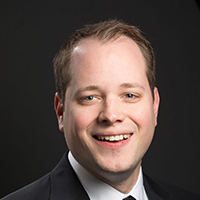
Maximilian Stahl
USA
Bio
Maximilian Stahl
Dr. Stahl is a member of the Adult Leukemia Group at Dana-Farber Cancer Institute and an Instructor of Medicine at Harvard Medical School. His research focus is on early phase clinical trials in myeloid malignancies including acute myeloid leukemia (AML) and myelodysplastic syndromes (MDS).
He authored and co-authored more than 100 peer reviewed publications and has presented his research in multiple national and international meetings. He has received the ASCO Conquer Cancer Foundation Young Investigator Award, the ASH HONORS Award, the Leukemia & Lymphoma Society Translational Research Program Award and several ASH Abstract Achievement Awards. He is a member of the Editorial Board of Leukemia & Lymphoma and serves as an ad hoc reviewer for several journals including Blood, Blood Advances, Clinical Cancer Research, the British Journal of Haematology and Haematologica.
He graduated from Hannover Medical School in Hannover, Germany. He then received his internal medicine residency training at the Yale School of Medicine where he also served as a chief medical resident. He then completed his Hematology and Oncology fellowship training at the Memorial Sloan Kettering Cancer Center in New York City.
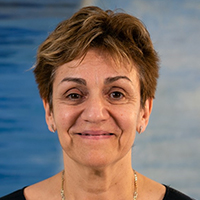
Anna Sureda
Spain
Anna Sureda

Catherine Thieblemont
France
Catherine Thieblemont
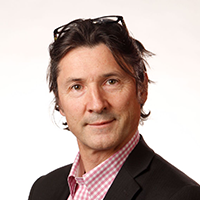
Olivier Tournilhac
France
Bio
Olivier Tournilhac
Pr. Dr. Olivier Tournilhac is a hematologist at Clermont-Ferrand University Hospital, France. As a coordinating member of the FILO, LYSA and the CLL subcommittee of the CMWP-EBMT, he has focused his clinical and translational research activities on Chronic Lymphocytic Leukemia, Waldenström Macroglobulinemia and Peripheral T-cell Lymphoma.
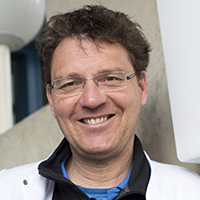
Arjan van de Loosdrecht
Netherlands
Bio
Arjan van de Loosdrecht
A.A. van de Loosdrecht passed Medical School (cum laude) in 1989 at the VU University Medical Center in Amsterdam, The Netherlands. He received his PhD graduation (cum laude) in 1993 at the same University and graduated in Immunology in 1995. From 1993-1998 he followed clinical training in Internal Medicine followed by hematology at the Groningen University Medical Center, Netherlands. From 2000, he is a staff member and since 2012 a full professor of hematology at the department of Hematology, Amsterdam UMC. He is principal investigator of the preclinical and translational immunotherapy programs in AML and MDS. The major research lines focus on the immunopathogenesis of MDS/AML and on the development of leukemic dendritic cell vaccines for active specific immunization in patients with minimal residual disease (MRD). He is coordinator of HORIZON2020, AML-VACCiN program dealing with Dendritic Cell vaccination in AML. In MDS research focuses on the implementation of flow cytometry in MDS diagnosis and prognosis. He initiated a platform within the ELN on the implementation of flowcytometry in MDS. He is chair of the Database Sharing Committee of the International Working Group for Prognosis of MDS (IWG-PM) and board member of the Dutch HOVON working group on AML and MDS.
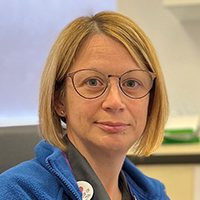
Claire Woodley
UK
Bio
Claire Woodley
I have over twenty-five years’ experience in haematological nursing. I hold a BSC(hons) in Adult nursing and a Post grad diploma in Advanced Practice, Cancer and Palliative Care. I have worked at Guys Hospital since 2004, specialising in MPN since 2008 in roles that have included leading clinical trials, clinical nursing specialist and my current role as an Advanced Nurse Practitioner in MPN. I practice within Nurse-led clinics, Consultants clinics and inpatient/outpatients setting. I am an independent prescriber.
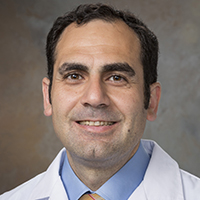
Amer Zeidan
USA
Bio
Amer Zeidan
Amer Zeidan, MBBS, MHS is an Associate Professor of Medicine (Hematology) at Yale University. He is also the medical director of Hematology Early Therapeutics Research, the leader of the Myeloid malignancies DART (Disease Aligned Research Team), and the director of CME at Hematology division at Yale Cancer Center. Dr. Zeidan has completed a hematology/oncology fellowship and a clinical research fellowship in myelodysplastic syndromes (MDS) at Johns Hopkins University where he also earned a Master of Health Science (MHS) degree in Clinical Investigation. Dr. Zeidan specializes in the management of myeloid malignancies especially MDS and acute myeloid leukemia (AML). The focus of Dr. Zeidan’s clinical/translational research is the development of novel therapies for myeloid malignancies, with a special focus on targeted therapies and immunotherapy-based approaches. Dr. Zeidan is also active in health outcomes and comparative effectiveness research for blood cancers diseases and their therapies.